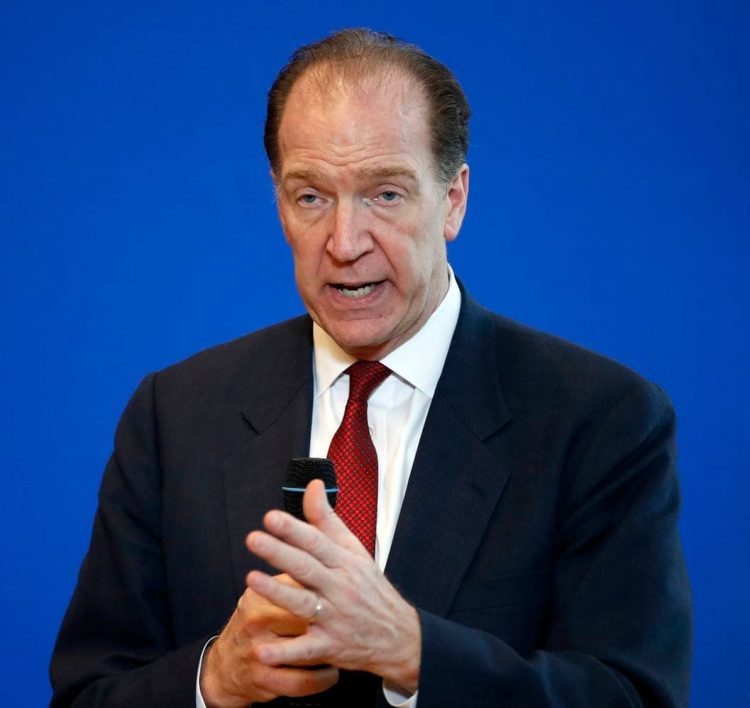The World Bank Group has advised countries badly hit by Covid-19 pandemic to ensure that food supply chains continued to flow and function safely.
The bank, which said it spent $160 billion in 15 months ending June 30 to support global economic recovery, said it is also helping countries in monitoring the impact of the pandemic on ‘people’s ability to buy food’.
“We advocated for strong social protection programmes for the poorest and most vulnerable to ensure that people can afford to eat and access basic food supplies, while helping protect livelihoods,” World Bank Group President, David Malpass said in the bank’s 2020 annual report.
The Bank Group is supporting countries’ efforts to scale up their social safety nets. This includes cash transfer operations through both in-person and digital options so that governments can efficiently deliver this critical support to their most vulnerable people. We are also engaging with governments to eliminate or redirect costly and environmentally harmful fuel subsidies and reduce trade barriers for food and medical supplies.
The bank said pandemic could push about 100 million more people into extreme poverty in 2020. Countries impacted by FCV challenges are particularly vulnerable to the health, social, and economic impacts of the pandemic. Our support in these settings focuses on investing in prevention, remaining engaged in crisis situations, protecting human capital, and supporting the most vulnerable and marginalized groups, including forcibly displaced populations. The poorest and most vulnerable countries also face food insecurity, as supply chain disruptions and export restrictions threaten the food supply.
Unprecedented locust swarms are further disrupting food security and livelihoods in East Africa. Economic growth is expected to contract from 2.4 percent in 2019 to between –2.1 and –5.1 percent in 2020, sparking the region’s first recession in 25 years. The pandemic is likely to push millions of households into poverty and could spark a food security crisis, with Africa’s agricultural production potentially contracting in the range of 2.6 to 7 percent. With almost 90 percent of the region’s workers in informal jobs, we also seek to help countries reach them with the support they need.
The Bank Group is expanding support for regional integration, including fostering link- ages with North Africa, to address the key priorities of the continent’s 54 countries. We are focusing on: strengthening connectivity through infrastructure development in trans- port, energy, and digital technology; supporting trade and building markets; improving human capital by providing opportunities for skills development, empowering women, and managing diseases and pandemics; and promoting resilience through work on farming and livestock, food security, climate change, displacement, and transboundary waters. We also aim to address the drivers of fragility in the Horn of Africa, the Lake Chad region, and the Sahel.
It said locust swarms are jeopardizing the food security and livelihoods of millions of people in the region. “We are helping countries respond to this threat through the $500 million Emergency Locust Response Program, which provides support for monitoring and controlling locust populations, helping people safeguard their assets and cope with the economic impacts, and strengthening national preparedness systems. The program has provided financing to Ethiopia, Kenya, Somalia, and Uganda to support their response efforts,” the bank said.



